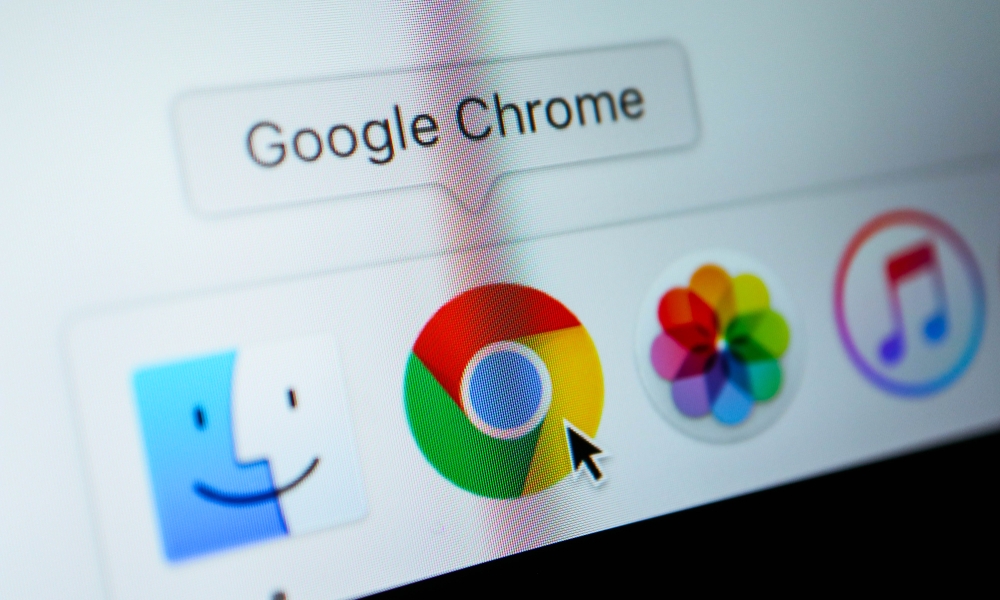Why You Should Ditch Google Chrome for Firefox or Safari Right Now
 Credit: Sam Kresslein / Shutterstock
Credit: Sam Kresslein / ShutterstockToggle Dark Mode
Google Chrome is the world’s most popular web browser by a large margin. And yet, there are plenty of reasons why you should switch — especially now. To be clear, Chrome is not a bad browser. In fact, it may just be the best or one of the best. But there are several factors that could prove to be a dealbreaker for some people. Here are a few reasons why you may want to ditch Chrome for another browser.
ZombieLoad
News broke recently about a major new security vulnerability called ZombieLoad. Essentially, it’s a CPU-level flaw that a bad actor can exploit to steal sensitive data from your computer.
Many tech firms scrambled to release fixes for operating systems and browsers. But Google says the fixes it tested for Chrome weren’t “complete or performant.” Essentially, Chrome’s team passed the buck.
As a result, Google recommends users rely on “operating system level mitigations.” The problem for Apple users is that the ZombieLoad patch in macOS 10.14.5 only applies to Safari. The OS-level mitigation Google is talking about is called full mitigation.
Full mitigation, you should know, could cause up to a 40 percent performance hit on your Mac. Together with the other factors on this list, the vulnerability is a good excuse to switch to another browser that has patched ZombieLoad (such as Safari or Firefox).
Shoddy Privacy Policy
Google is a notorious data collector. And although the company appears to be taking steps to change its image, it even admits that it uses some of the data it collects to send you targeted advertisements.
If you use Chrome with Google’s other services, like Gmail or YouTube, you’re opening yourself up to a lot of data collection. If you use Google search, Google will track every query you make, along with a slew of other types of data. Just have a glimpse at Google’s My Activity page.
Depending on how you use your browser and Google services, the company many even track your internet history when you’re in Incognito mode.
In other words, Google, as a company, is not good for user data privacy. You shouldn’t expect its browser to be any different.
Similarly, most of the extensions on Chrome’s gallery don’t have a privacy policy. That’s bad news for extension-happy users who don’t vet the legitimacy of their browser add-ons.
Chrome Is Resource Heavy
Chrome is notorious for being a resource hog. Just fire up Activity Monitor and see what we mean — Chrome is likely using up a good chunk of your RAM.
To be clear, RAM doesn’t really work the way most people think it does. For one, idle RAM isn’t really something you want. But that doesn’t change the fact that Chrome can quickly eat up a lot of your system’s resources.
By contrast, Safari and Firefox are a bit lighter-weight. If you use your browser in conjunction with other resource-intensive system tasks, it might be worth giving either browser a shot.
Both browsers could also be better on your Mac’s battery than Chrome. Safari is obviously the best when it comes to battery-saving, but Firefox appears to be a bit more energy-efficient than Chrome when it comes to pure web browsing.
The Alternatives Are Great
Chrome is likely the most popular browser in the world because it used to be the fastest and lightest. These days, the difference between Chrome and other browsers is a lot less noticeable.
Safari, for its part, works like a dream on Apple products. In fact, if you’re solely in the Apple ecosystem, it’s probably the best browser for you in terms of performance and convenience. The most recent versions of Safari also incorporated plenty of privacy-focused features, which lines up with Apple’s broader commitment not to snoop on you.
Open-source browser Firefox recently launched a new version of its own browser called Quantum, which is twice as fast as the previous version (and a bit faster than Chrome). Firefox also has a much better data privacy policy than Google and supports many of the same extensions, customization and syncing options.
And, again, it’s worth noting that Firefox and Safari are both currently patched against the ZombieLoad vulnerability — so you won’t have to take a performance hit to keep using them.
In other words, give Safari or Firefox a try. After an adjustment period, you may just find that you like them more than Chrome.







